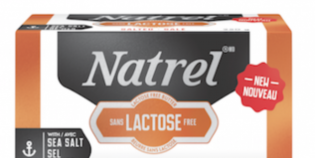There is a major trust deficit in Canada with no industries or organizations attracting high levels of trust, concludes the inaugural Environics Communications CanTrust Index.
The study found that none of the nine industries measured scored a passing grade when it comes to public trust, with broadcasting and streaming companies topping the list with a mere 44% score.
Food retailers (43%), banks (40%), online shopping companies (37%), telecommunications and cable TV firms (35%) and pharmaceutical companies (34%) followed, while social media platform companies tied for last spot with energy, pipelines and resource companies at 26%. Primary household shoppers had even lower levels of trust for these industries.
The study was the first in what aims to become an annual measurement of the trust the general public, newcomers and primary household shoppers in Canada have in a range of organizations, leaders and industries.
“We know that trust is a really important part of building brand loyalty and relationships with organizations, so we wanted to develop a really, truly made in Canada trust index,” says Bruce MacLellan, CEO of Environics Communications. “We think it’s a pretty comprehensive look at the different sources of trust, trust in organizations and trust in leaders. “
The study asked people to use a seven-point scale to rank their trust in businesses, products and services, and governments and their ability to “do what is right for Canada, Canadians and our society.”
In terms of organizations, respondents gave their most trust to not-for-profit organizations (59%), followed closely by news media (54%), with small to medium-sized corporations trailing at 44% and large corporations scoring a dismal 29%.
“This is a good news story for traditional media,” MacLellan says. “Trust in the news media is still very strong in Canada.”
In addition, the study asked Canadians to choose between speed and accuracy in news, with almost 80% preferring accuracy, MacLellan says. “For the traditional media, this is almost a referendum on real journalism versus citizen journalism. It shows that Canadians want accurate information.”
Trust in large corporations was higher in Quebec at 44% versus the national average of 29%. “We think it’s because of the number of successful Quebec-based corporations who have strong relationships with [Quebecers],” such as Desjardins and Rona, says MacLellan.
The study also found Canadians place the most trust in their own CEO/most senior boss at work (52%), followed by their mayor (50%) and the Prime Minister (46%). Popular mayors in Calgary and Toronto helped boost the score for that category.
“We thought the Prime Minister would be higher in the trust score,” MacLellan says. “He came in the middle of the pack, which demonstrates how tough it is to be popular as a politician in Canada.”
The study also asked people what is it that contributes to trust and found a strong presence in local communities helps (69%). “Organizations that show they’re investing in the community, creating jobs in the community are the sort of things that build trust.”
Trust in word-of-mouth or recommendations by someone you know was the most trusted source of information when it comes to a product, service, brand or organization, at 75% of Canadians. In comparison, trust in traditional advertising and online advertising is relatively low at 31% and 24%, respectively.
“Advertising can still be very powerful to build awareness quickly and reach a lot of people quickly,” MacLellan says, but is not enough to close the sale.
In addition, the study discovered 79% of Canadians don’t trust what companies say about the quality of their products and services and prefer third-party validations. “Marketers that can find a way to build third-party endorsements in their products should do better.”
Trust in blogs and bloggers is another growing source of influence with 34% of Canadians trusting blogs from bloggers they follow. A similar study carried out by Environics in 2010 found only 10% of respondents mentioned blogs as a source that would influence their purchasing decisions.
The online survey of 1,001 Canadians 18 years or older was conducted from Feb. 29 to March 7 and was nationally representative.









